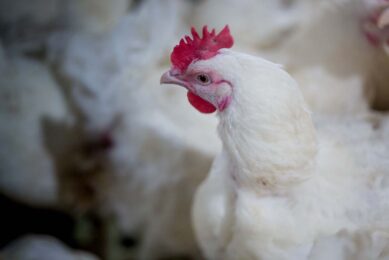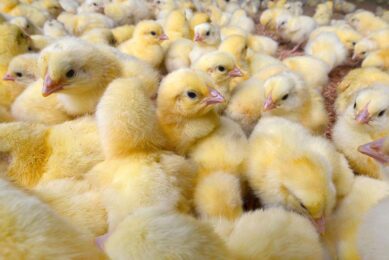European farmers more upbeat about prospects

The results of the latest DLG Trendmonitor Europe survey, conducted this spring by the German Agricultural Society, show signs of confidence not just in the current economic climate, but also regarding expectations of further business growth. There is also a renewed willingness to invest.
European farmers can finally see light at the end of the tunnel, suggesting that the sense of despondency that prevailed in 2016 has lifted. Both the current economic climate and expectations of business growth are viewed in a far more positive light than in autumn 2016. These are the main results of this spring’s DLG Trendmonitor Europe, a survey of:
- 700 German,
- 700 French,
- 500 Polish and
- 350 British farmers
Improvements in key markets
Presenting the findings, the DLG Director of Economics, Dr Achim Schaffner, explained the upswing was due to the improved market situation for cereals, milk and pork. Cereal prices are picking up again after the 2016 slump. In the DLG’s home market of Germany, for example, cereal exports are well up on the previous year and prices have recovered, although they remain at a modest level compared with recent years.
French, Polish and British farmers, just like their German counterparts, are benefiting from the more favourable environment and see the current economic climate in a far more positive light than in autumn 2016. French pig farmers have succeeded in significantly increasing pork exports to China at a time when supplies are declining, and the resulting rising price level has stabilised the business situation of the country’s farmers, leading to a more upbeat assessment of the current economic climate.
Farmers far more confident about future business growth
Farmers in all 4 countries surveyed, (Germany, Poland, France and the UK) are significantly more confident about business growth in the next 12 months. With milk and pork expected to remain in short supply and dynamic export growth driving healthy sales, this combination of a fairly tight supply and high demand should at least lead to strong prices. And there are good indications that the strong demand will persist. This has prompted the International Monetary Fund to predict an upward trend in global economic output, which will be of particular benefit to emerging countries. This is because rising raw material prices are boosting economic development and stimulating global demand for agricultural products.
Despite the uncertainties surrounding Brexit and its impact on agricultural policies, farmers in the UK are also optimistic about business growth in the next 12 months. They hope that Brexit will cut red tape and give businesses more decision-making autonomy, which could strengthen the competitiveness of producers. In addition to these mid-term expectations, favourable financial terms and the weak pound add to the favourable conditions for British agriculture.
Renewed willingness to invest
The economic turnaround has significantly boosted the appetite for investment among farmers surveyed in Germany, France, Poland and the UK. Farmers surveyed plan to invest within the next 12 months:
- Germany, 42% of (+10 percentage points compared with autumn 2016),
- Poland, 45% (+7 percentage points),
- UK, 50% (+16 percentage points) and
- France, 22% (+8 percentage points).
However, despite current growth, willingness to invest in Germany, Poland and France remains below the average level for the past 10 years. Having struggled with low prices for 2 years, livestock farmers are still focusing on strengthening their solvency. Moreover, in the 4-year period from 2010 to 2014, strong investment confidence was marked by investments in expansion and modernisation. Consequently, the current 4-year period is characterised by replacement investments and a consolidation of operations. In contrast, the willingness to invest in the UK is now at the same level as the boom period of 2010 to 2014. In the light of a more favourable economic environment, British farmers are preparing for their exit from the EU and strengthening their competitiveness through investments.
Farmers in Germany and the UK are stepping up investments in field equipment, while farmers in France are focusing on investments in animal husbandry and renewable energies. Farm managers in Poland, meanwhile, are reducing investments in bioenergy and increasing them in on-farm and field equipment.
Countries face different challenges
Farm managers face a number of challenges despite the generally more benign business environment.
German farmers
The challenge for German farmers is to maintain solvency in the face of fluctuating prices and to ensure social acceptance – issues that have preoccupied farmers in recent months as they have been working on suitable farm management strategies.
British farmers
Cutting production costs and the reform of the agricultural policy are the main challenges facing British farmers. Direct payments are expected to fall after Brexit, so farmers must cut costs to make up the anticipated shortfall. With investments aimed at improving productivity, farm managers in the UK are charting a post-Brexit course.
French farmers
No one issue dominates the picture in France, where farmers give equal weight to the challenges of ensuring liquidity, reducing production costs, reforms to the agricultural policy and the uncertain investment situation regarding tougher environmental and animal welfare standards.
Polish farmers
Farmers in Poland see ensuring liquidity at a time of fluctuating prices and the uncertain investment conditions as their greatest challenge.
Join 31,000+ subscribers
Subscribe to our newsletter to stay updated about all the need-to-know content in the poultry sector, three times a week. Beheer
Beheer








 WP Admin
WP Admin  Bewerk bericht
Bewerk bericht